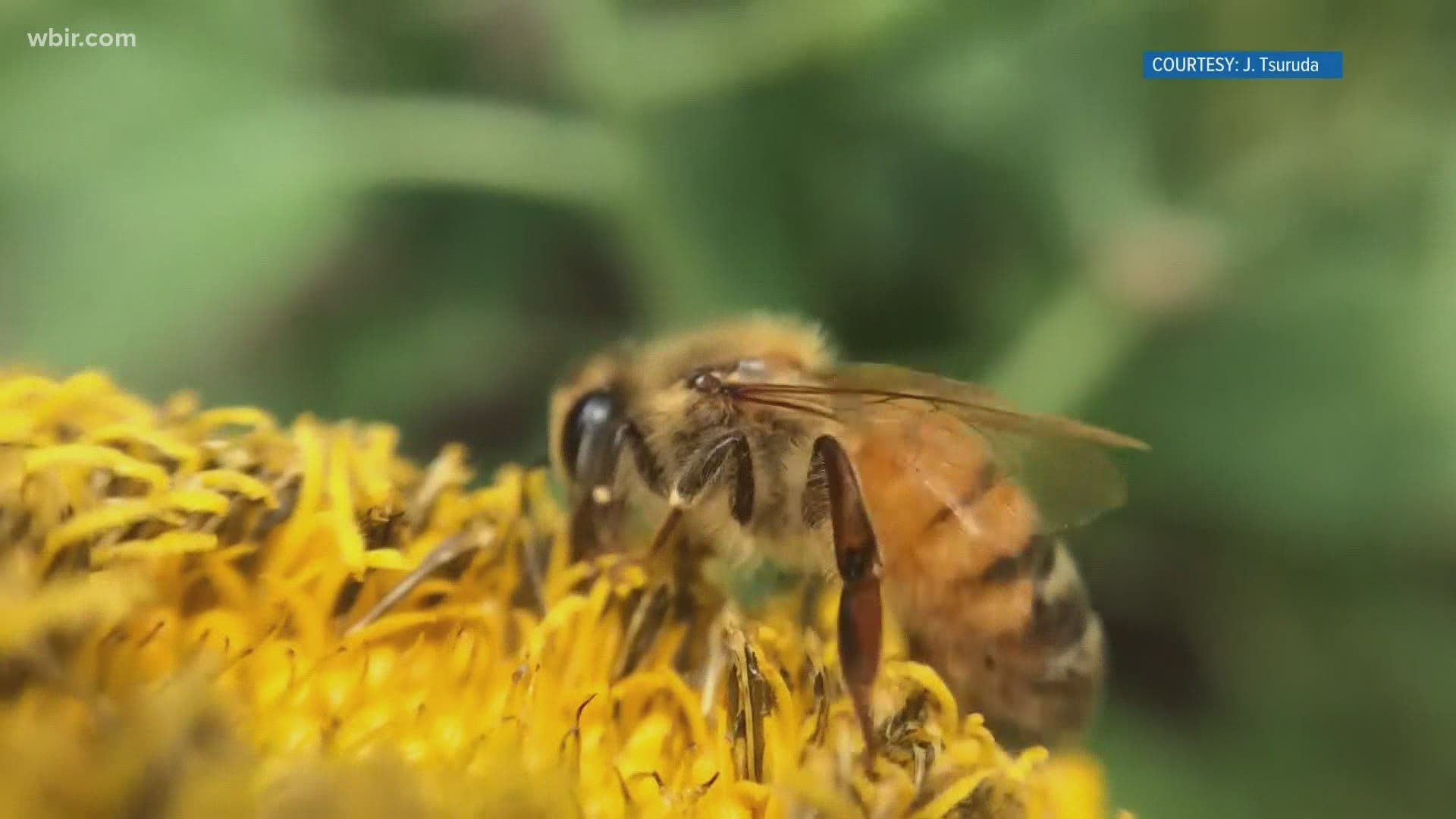TENNESSEE, USA — They're all around East Tennessee — bees, butterflies, beetles and pollinators of every kind. Most people don't pay them any attention, but they are some of the hardest workers in the region.
National Pollinator Week recognizes pollinators for their work and to celebrate them for supporting the regional ecology. Tennessee State Parks is encouraging people to see pollinators by visiting meadows installed at eight of their parks. They posted pictures of pollinators in the area on social media Tuesday.
Pollinators help plants grow throughout a region by carrying pollen from one plant to another, helping produce fruits, seeds and young plants. The plants can then be consumed by herbivores, serving as the foundation for the region's food chain.
Without them, experts say ecologies could dramatically change and even threaten lives. Federal officials say one out of every three bites of food people eat exists because of pollinators such as fruits, vegetables and seeds.
By helping plants grow, pollinators also help stabilize soil and clean a region's air. They also said honey bee pollination contributed to more than $19 billion of crop production in 2010, and pollination from other insects contributed around $10 billion of crop production.
According to Tennessee State Parks officials, pollinators are also in decline because of habitat loss, exposure to pesticides and other stressors. Yet, there are ways to help them.
People can plant pollinator gardens filled with a variety of flower colors and shapes to attract different pollinators. Federal officials encourage choosing native plants to attract native pollinators.
Some pollinators like hummingbirds also need to find places to nest. People can help them by providing ground or wood nesting sites. For a ground-nesting site, people can maintain a small undisturbed patch of bare ground away from sprinklers where pollinators can rest.
Wood nesting sites can also help pollinators like carpenter bees. Most of the time, these sites can be created while pruning shrubs by cutting them to a foot high if they feel hollow or soft inside.
People can also avoid using pesticides since they can stress pollinator populations and kill valuable bees, birds and beetles.

